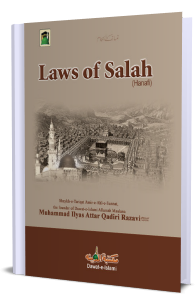Dar-ul-Ifta Ahl-e-Sunnat
What should one do if the congregational Salah began while he was offering Fard Salah?
Question 3: What do the honourable scholars say regarding the following matter: A person is offering his Fard Salah in the Masjid and the congregation (Jama’at) is established. So, when should he join it? Please explain in detail.
Question by: Qaari Shayr Ali Khan (Punjab)
بِسْمِ اللّٰہِ الرَّحْمٰنِ الرَّحِیْمِ
اَلْجَوَابُ بِعَوْنِ الْمَلِکِ الْوَھَّابِ اَللّٰھُمَّ ھِدَایَۃَ الْحَقِّ وَالصَّوَابِ
Answer: The cases of this are as follows:
1. If he is in the first Rak’at, he should break his Salah by doing Salam towards one side while standing and join the congregation.
2. If he has done the Sajdah of the first Rak’at and the congregation has been established, then in Fajr and Maghrib, he should do one Salam, end his Salah and join the congregation. In Zuhr, ‘Asr and Isha, he should complete two Rak’aat and then join the congregation.
3. If he has done the Sajdah of the second Rak’at and the congregation has been established, then in Fajr and Maghrib, he will complete his Salah and not join the congregation. In Zuhr, ‘Asr and Isha, he will complete the two Rak’aat and join the congregation.
4. If he is in the third Rak’at and the congregation was established, then in Zuhr, ‘Asr and Isha, he will do one Salam while standing and then join the congregation. In Maghrib, he will complete his Salah and not join the congregation.
5. If he has done the Sajdah of the third Rak’at and the congregation was established, then in Zuhr and Isha, he will complete his four Rak’aat and join the congregation with the intention of Nafl (voluntary) Salah. In ‘Asr, he will complete four Rak’aat and will not join the congregation, as voluntary Salah is not permissible after ‘Asr Salah.
وَاللہُ اَعْلَمُ عَزَّوَجَلَّ وَ رَسُوْلُہٗ اَعْلَم صلَّی اللہ علیہ واٰلہٖ وسلَّم
Answered by: Abu Ahmad Muhammad Anas Raza Attari
Verified by: Mufti Muhammad Hashim Khan Attari
How is it for medical students to experiment on human bodies?
Question 1: What do the honourable scholars say regarding the following matter: Medical students practise and experiment on human bodies. How is it for them to conduct such experiments?
Question by: Muhammad Imran Attari, Lahore
بِسْمِ اللّٰہِ الرَّحْمٰنِ الرَّحِیْمِ
اَلْجَوَابُ بِعَوْنِ الْمَلِکِ الْوَھَّابِ اَللّٰھُمَّ ھِدَایَۃَ الْحَقِّ وَالصَّوَابِ
Answer: It is Haraam and sinful to experiment on human bodies because this is painful for the dead body; a deceased person feels pain just like a living person. This is also a form of insulting and humiliating the deceased; the honour and respect of a human remains even after death. It is not permissible to dishonour the deceased. Furthermore, this involves amputation which is also impermissible. In Ahadees, it has been prohibited to amputate even a Harabi Kafir (disbeliever) during a battle. Also, this is a cause of delay in the shrouding and burial of the deceased, which is also impermissible.
وَاللہُ اَعْلَمُ عَزَّوَجَلَّ وَ رَسُوْلُہٗ اَعْلَم صلَّی اللہ علیہ واٰلہٖ وسلَّم
Mufti Muhammad Haashim Khan Attari

















Comments